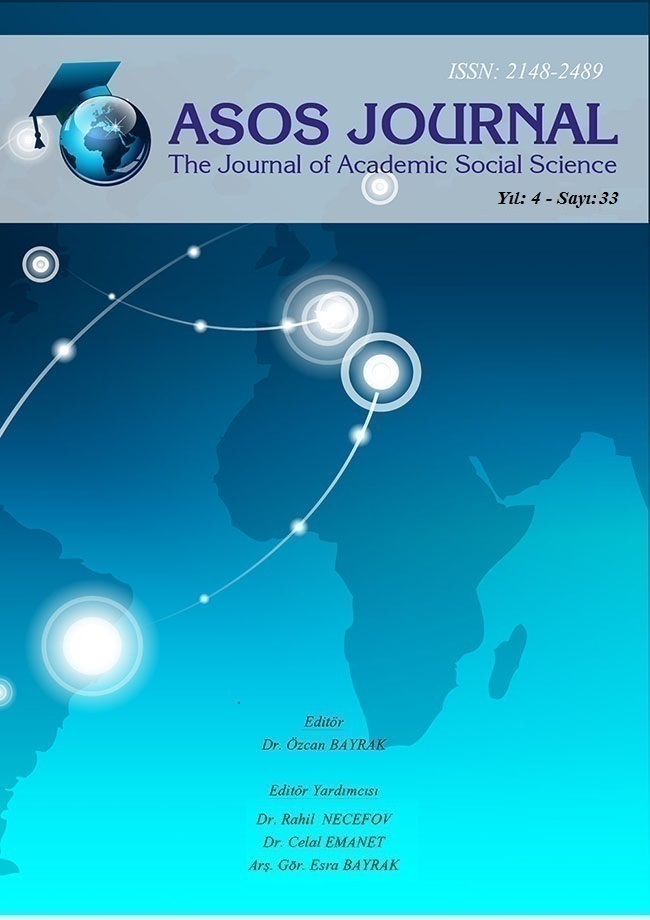Author :
Abstract
Bu makalede, tarihsel realitelere kaynaklık ederek günümüze ulaşan bilgi, belge ve eserler ışığında, İslamiyet Öncesi Türk Devletlerinde kısmen karşılaştırmalı bir analize bağlı kalarak, “devlet geleneğinin oluşumunu ve bu oluşumda etkili olan faktörleri, örgütlenme biçimini, egemenliğin kaynağını” meşruiyet probleminin kuramsal temelleri etrafında değerlendirilmesi amaçlanmıştır. Değerlendirmeler sonucunda, İslamiyet Öncesi Türk Devlet geleneğinin oluşmasındaki ontolojik dayanakların, kurucu ideolojiyle kapsam ve içerik bakımından ne bir çelişme ne de çekişme içinde olmadığı ve yöneten-yönetilen ilişkisinde ideal ve reel dengenin önemsendiği görülmektedir. Bu dengede millet, ülke, egemenlik ve politik örgütlenme gibi temel dinamiklerin, “kut” inancıyla büyük ölçüde uzlaştırıldığı anlaşılmaktadır. Ayrıca teokrasinin temel parametreleri göz önüne alınarak her ne kadar siyasi erkin meşruiyetinin kaynağının özünde Tanrı olsa da, Türk Devlet geleneğinde bu durumun teokratik bir yönetim tarzıyla eşleştirilemeyeceği, bu yöndeki ısrarların ise aşırı zorlama ve maksatlı olabileceği kanaatine ulaşılmıştır.
Keywords
Abstract
This article aims to evaluate Turkish state formation tradition during the pre-Islamic era, the factors that were at stake during this formation, types of official organization, and sources of sovereignty. This is done by a comparative analysis of various pre-Islamic Turkish states in the light of sources that come up to today and present historical reality. The results of the evaluation show that the ontological foundations of this tradition present neither a contradicton nor a conflict with respect to the content of the founding ideology, and balance of the ideal and the real were taken care of. Within this balance, the basic dynamics such as nation, country, sovereignty and political organization were largely compromised with the “kut” belief. Furthermore, it is concluded that, as a fundamental parameter of a theocracy even it is clear that the essential source of the legitimacy of the political power is God, the Turkish state tradition stil can not be matched with a theocratic government type and such aims are unrealistic and purposive.





